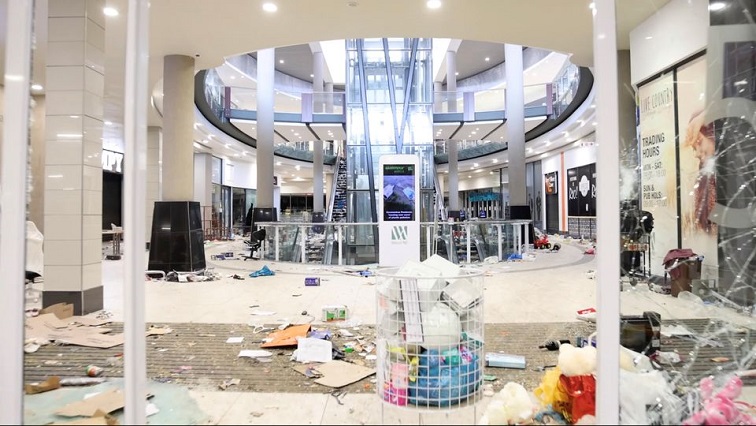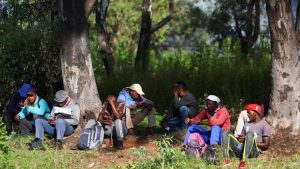Samsung has activated a remote blocking system on all its television sets that were looted from their Cato Ridge distribution centre in KwaZulu-Natal last month.
The tech giant says in a statement it is committed to re-opening businesses and minimising the loss of jobs in line with the plea to #RebuildSouthAfrica.
In line with this, Samsung activated the built-in remote TV block function on the stolen television sets. Director of Consumer Electronics at Samsung South Africa, Mike van Lier, says in a statement the technology was developed to mitigate against the sale of illegal goods.
The remote blocking system will come into effect when the user of the stolen TV tries to connect to the internet in order to operate the television set.
Once connected, the serial number of the TV is identified by the Samsung server as a stolen item and the television functions will be disabled. The statement says the blocking systems on the stolen TVs were activated on 11 July already.
SA insurer to cover following unrest
South Africa’s only insurer covering political violence will increase its premiums to cover a rise in reinsurance costs following some of the worst unrest in decades, the head of the state-owned company told Reuters.
More than 300 people died and around 3 000 stores were looted when protests and violence erupted in July, sparked by the imprisonment of former President Jacob Zuma but later driven by anger over poverty and inequality.
Sasria, which was set up after private firms stopped underwriting risk relating to political violence during apartheid, currently estimates claims related to the unrest at R18 billion ($1.19 billion), according to a presentation on Monday.
It is relying partially on reinsurance contracts to pay, and the cost of those contracts is now increasing, managing director Cedric Masondo told Reuters by phone.
“We will increase the rate driven by the increase in reinsurance,” he said, declining to say by how much. He said the timing of the increase had not been finalised
A circular communicating the decision to Sasria agents – local private insurers, was published on its website, dated August 4.
It said the increase would be effective from October 1.
As Sasria is the only entity offering insurance coverage for political risks, firms across the country could be in line for higher premiums if they seek protection against losses linked to events like strikes or protests.
Masondo said it was still deciding whether all clients would be affected.
The insurer’s standard coverage offered by agents runs to a maximum of R500 million, while an additional R1 billion is available to bigger firms that approach Sasria directly.
Some coverage is also available on the open market, in particular for large corporates looking for protection beyond the R1.5 billion maximum Sasria offers.
A senior executive at one global insurer, who declined to be identified, told Reuters it would also increase its property insurance rates as a result of Sasria’s decision.
Video| Aerial view of looting in KwaZulu-Natal: 14 July 2021






